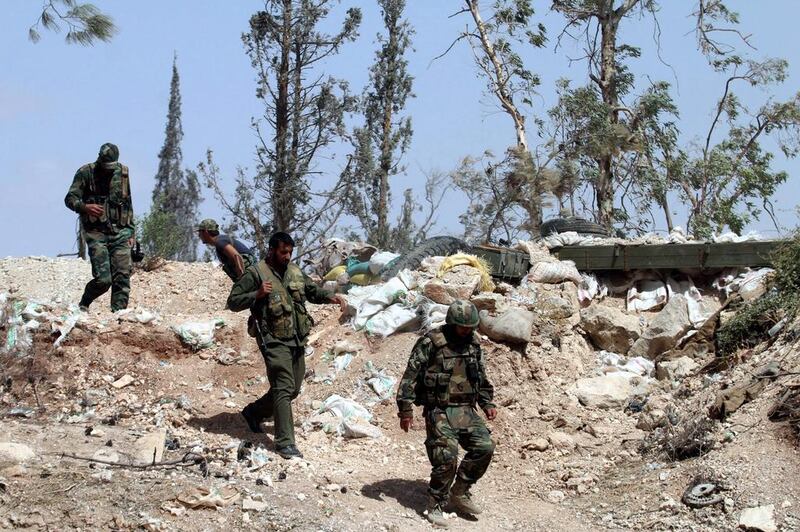BEIRUT // Abandoning a long-standing reticence, Iranians are increasingly candid about their involvement in Syria’s war, and informal recruiters are now openly calling for volunteers.
With public opinion swinging behind the cause, numbers of would-be fighters have soared far beyond what Tehran is prepared to deploy in Syria, according to former fighters and commanders.
Iran has been sending fighters to Syria since the early stages of the five-year war to support its ally, President Bashar Al Assad, in the struggle against rebels backed by Gulf Arab states, Turkey and Western powers.
Once Tehran described these forces as military “advisers” but with around 400 killed on the battlefield, this discretion has slipped and several thousand are now believed to be fighting groups trying to topple Mr Al Assad.
Many Iranians initially opposed involvement in the war, harbouring little sympathy for the Syrian president. But now they are warming to the mission, believing that ISIL is a threat to the existence of their country best fought outside Iran’s borders.
“The first line for the security of Iran is Syria and Iraq,” a would-be volunteer named Mojtaba said. He said he had been trying in vain to get out to fight in Syria for the past two years.
While ISIL still holds large areas of Syria and Iraq, it has so far failed to stage attacks in neighbouring Iran like it has in Turkey.
Nevertheless, Iranian media have reported the breaking up of cells linked to the group at home, and the large numbers of people such as Mojtaba willing to join the battle in Syria suggest Tehran has the stamina to pursue its involvement there for years if it wishes.
Iran alludes to its fighters in Syria as “defenders of the shrine”, a reference to the Sayeda Zeinab mosque near Damascus, which is where a granddaughter of the Prophet Mohammed is said to be buried, as well as other shrines revered by Shiites.
As well as Iranians, it has gathered Shiites from Lebanon, Iraq, Afghanistan and Pakistan to battle the Syrian opposition in what has become a sectarian conflict.
Brigadier General Mohsen Kazemeini, the Revolutionary Guard Corps commander for greater Tehran, said last month there were so many volunteers that “only a small number of them are sent to [Syria]”.
Fighters killed in Syria are praised as heroes on state television and given lavish funerals. Iranian wrestler Saeed Abdevali dedicated the bronze medal he won at the Rio Olympics to the families of “defenders of the shrine” who have been killed.
Some volunteers, disappointed at the long waiting list, take a shortcut. They fly directly to Damascus and volunteer at the Sayeda Zeinab shrine, according to postings on Modafeon, a website dedicated to news and pictures of the “defenders”.
The potent message of protecting the shrines has drawn in Shiite Afghans, some of whom live in Iran and others in Afghanistan. These Afghans fighting in Syria under the supervision of the Revolutionary Guards are known as the Fatemiyoun.
A 26-year old Afghan student living in Mashad in north-east Iran described how he was sent with other Fatemiyoun to fight in Damascus and Aleppo for about 45 days after limited training.
“My motivation is the same as the Iranians,” said the student, who asked not to be identified because of security concerns, said. “We are both fighting in Syria, so it shows our cause is far beyond geographic borders. We are fighting to defend our sacred beliefs and Shiite ideology.”
The Afghan fighters get about US$450 (Dh 1,652) a month, according to a Fatemiyoun commander.
Senior officials regularly discuss the role of the Revolutionary Guards and Iranian special forces in Syria in terms of confronting the existential threat that Iran faces from groups such as ISIL.
Karim Sadjadpour, an Iran expert at the Carnegie Endowment for International Peace in Washington, said this appealed more to public opinion than support for Mr Al Assad.
“Fighting Shiite-hating bloodthirsty ISIL jihadists is easier to sell to Iranians than wasting billions on a ruthless dictator who gasses his population,” he said.
*Reuters





